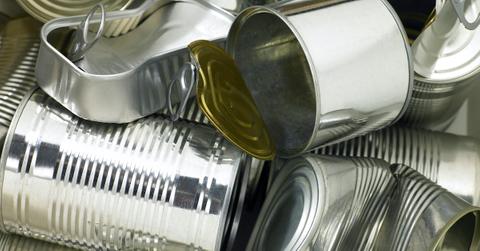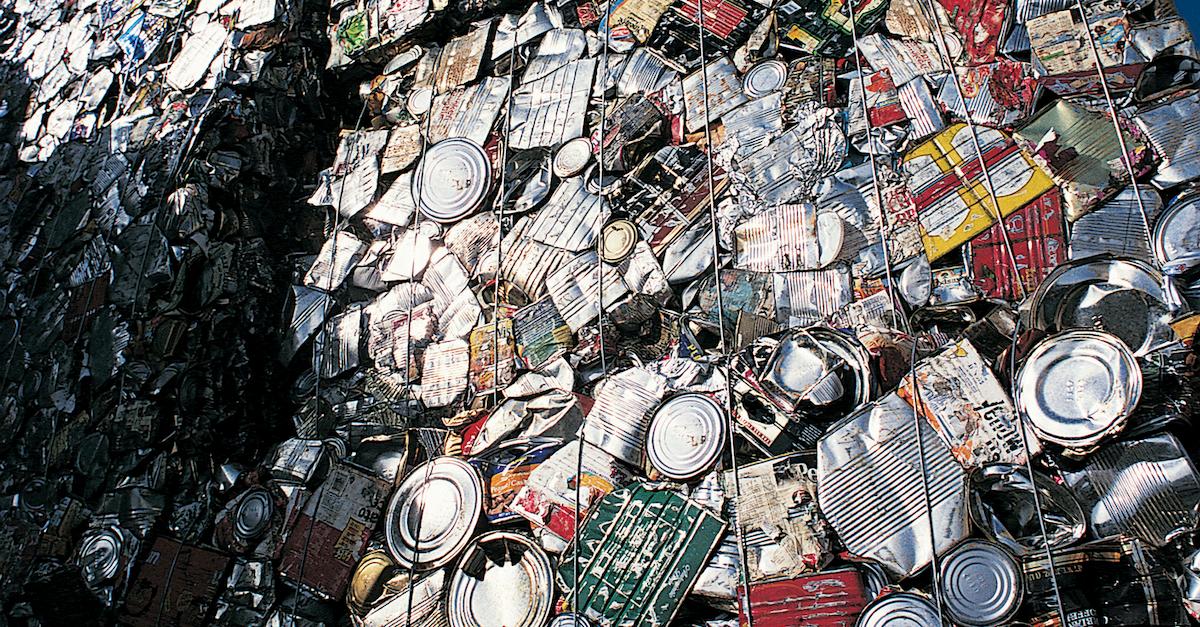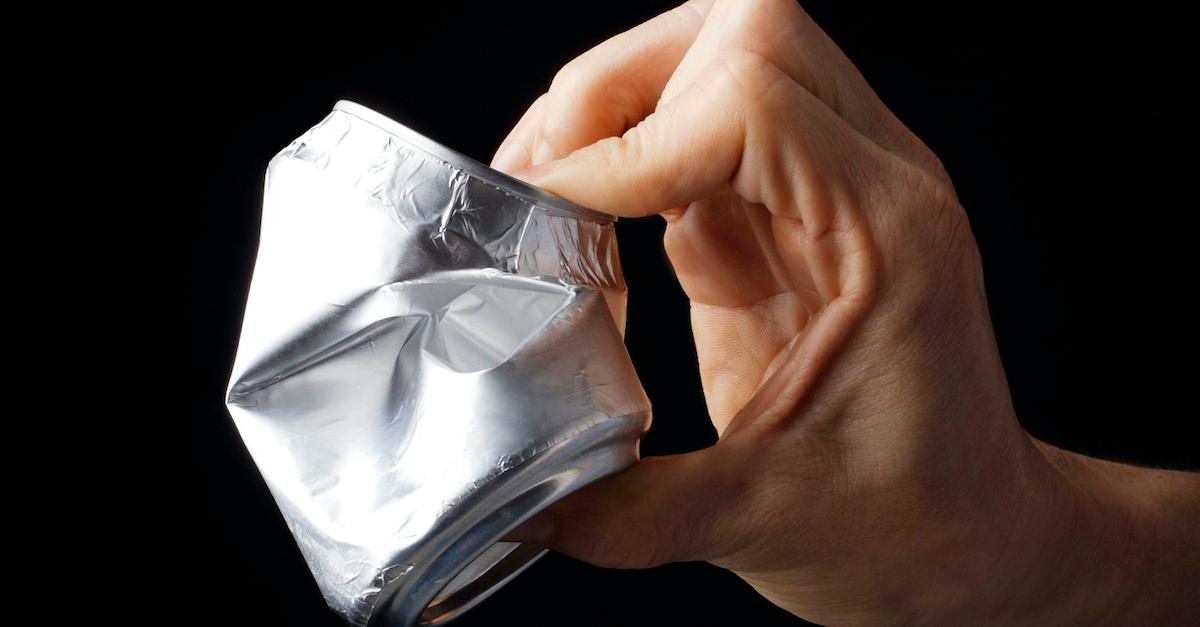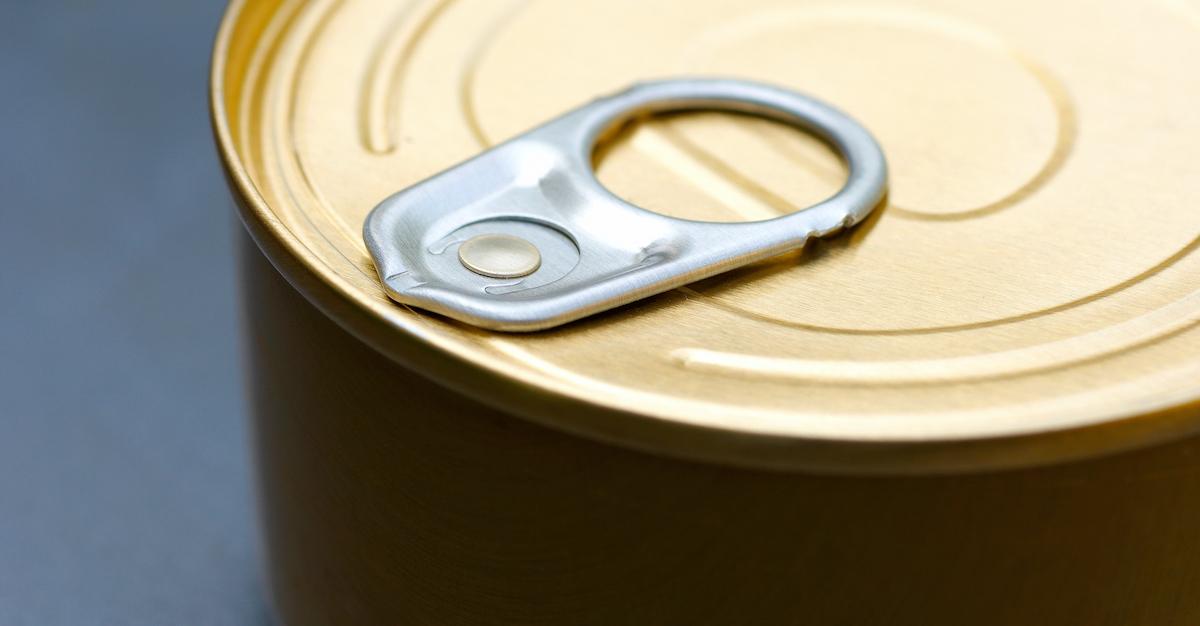Here's What You Need to Know About Properly Abiding by Recycling Code 40
Updated Jan. 5 2021, 10:05 a.m. ET

Just about everything is recyclable these days – car tires, old electronics, household batteries, and fabric. But if you've seen recycling code 40 and been stumped, you’re not alone. Most of the more common recycling codes are the resin identification codes found on various plastic items – polyethylene terephthalate, high density and low density polyethylene, polyvinyl chloride, polypropylene, and polystyrene to name a few. But recycling code 40 isn't something you see everyday.
However, just because recycling code 40 is not as common as say, 1, 2, or 3 plastics, that does not mean that it is impossible or difficult to do. Recycling code 40 denotes a totally recyclable material as long as it is recycled correctly. Keep reading for more pertinent information about recycling code 40.

What is recycling code 40?
Recycling code 40 FE is the classification of recycling code for steel, a highly durable variation to metal, according to How Stuff Works. It's made by stripping iron of phosphorous, silica, and sulfur before adding carbon to the chemical makeup. It's thought to be tougher and stronger than some other metals out there, like iron, and it is, making it a popular building material for sturdy structures like trains, skyscrapers, and ships.
But recycling code 40 FE doesn't refer to steel in buildings or ships — it most often refers to steel food cans and aerosol cans. Though steel has an immense durability, it can still be recycled. In fact, steel is actually a relatively sustainable material option, as it can be re-melted and reused to make new steel products infinitely, according BeRecycled.org. Recycling and reusing steel requires far less resources and energy than creating new steel from raw materials does.

Why is it important to recycle steel?
Recycling steel is important because it can be infinitely melted down and reused to make new products out of steel. Though steel is not technically a metal, the benefits of recycling it are very similar to the benefits of recycling metal. These include saving energy, reducing greenhouse gas emissions that occur from the use of raw materials, and even creating more jobs.
According to the Institute of Scrap Recycling Industries (ISRI), recycling metal cuts harmful emissions that cause global warming by as much as 300 to 500 million tons. BeRecycled.org also adds that recycling steel saves almost 74 percent of the energy used to produce the material from raw materials, which could power 18 million homes for one year.

What is the process of recycling steel?
To recycle steel, it must be separated from other materials, which is done with a magnet, according to Be Recycled, before it's crushed and shaped into bales that are shipped to steel mills. At the steel mill, the bales are melted in a furnace, and can be reused for almost anything — steel packaging, the body of a car, appliances, and steel framing. Recycled steel can also be used to provide structure sections and bridge spans in construction and architecture, using 100 percent recycled steel.
At home, recycling steel is as easy as recycling plastic. Because recycling code 40 most often comes in the way of canned foods or aerosol cans, you want to make sure that the material is completely cleaned of any food residue. (Pro tip: You should do this with any item you plan to recycle – make sure it’s cleaned first.)
Once the steel is clean, it can be dropped off at a local recycling center that deals with steel, a curbside recycling bin, or it can even be brought to scrap metal buy-back centers. Not sure where the closest scrap steel center near you is? Check out Earth911’s search feature to find a location near you. Happy recycling!